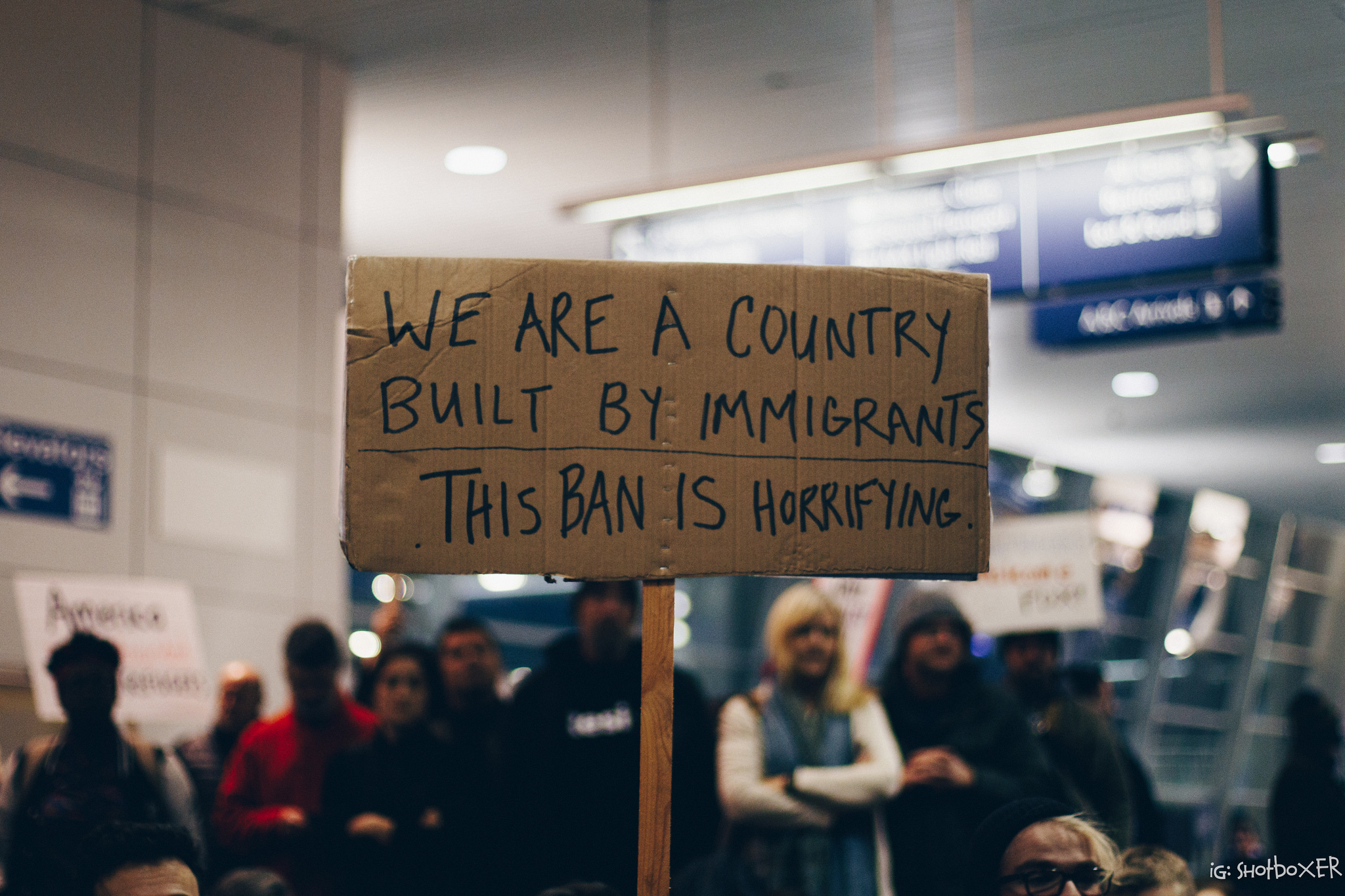While Trump is struggling with the difficulty of being president, the resistance to his and his party’s agenda has won many victories in the first 100 days since the inauguration. “Groups of people who have been attacked by Trump are responding in ways we haven’t seen before,” IPS director John Cavanagh told Rising Up with Sonali.
Two things happened after the Women’s march on Jan. 21 – movements whose self confidence was shattered after the election regained a sense of collective self confidence and Democrats in Congress who were prepared to figure out where they’d have to make compromises felt they were given a new mandate to stand up to Trump’s policies, Cavanagh said.
Other groups that traditionally stay out of political resistance joined social movements in their own ways, too. After Trump signed his initial Muslim Ban, “lawyers came into their own to support the remarkable outpouring of demonstrations at airports. They were working through the weekend to offer pro bono services to immigrants and refugees,” Cavanagh said.
“And on the streets, the movements are bigger, younger, more female, and include more people of color than during the Bush years,” Cavanagh said.
More people are learning how to be more active citizens, too. They’re reading resources like those from Indivisible and showing up at town halls to make their voices heard and stop legislation like Trumpcare from going through. “And many more people are saying no to pro-Wall Street, pro-war Democratic candidates and are running on progressive platforms in local elections,” Cavanagh said, “That portends very good things for the future.”
Though we’ve won a lot of battles, there’s a lot of work to do and many communities still in danger, Cavanagh said. Even though our movements helped kill the Trans-Pacific Partnership, for example, there are two big differences between Trump’s trade agenda and ours. “For one, he’s renegotiating NAFTA with big business advisers whispering in his ear, and two, his rhetoric is anti-Mexican, racist, and poses trade agreements as a zero-sum game.”
Cavanagh said progressives fought NAFTA hand-in-hand with Mexicans and Canadians. “The problem is not Mexican workers, as Trump likes to say, the problem is trade rules set by big corporations that try to play us off of each other,” Cavanagh explained. “It’s critical for us to fight against that with an internationalist message.”
Looking forward, Cavanagh thinks the resistance will be playing a lot more offense. “We’ve been fighting defensive battles in the first 100 days at the federal level, but there are a lot of things we can win at the local and state level to put forward our agenda aggressively and positively,” Cavanagh said.
…
